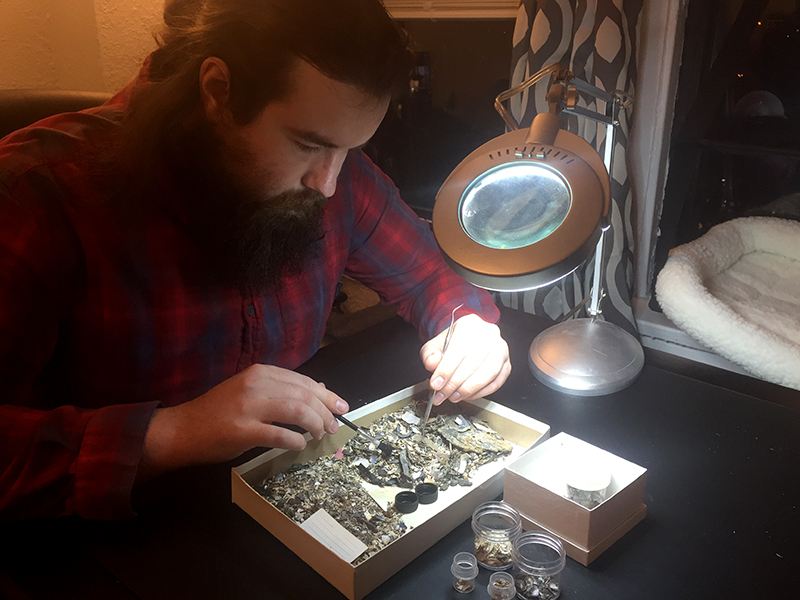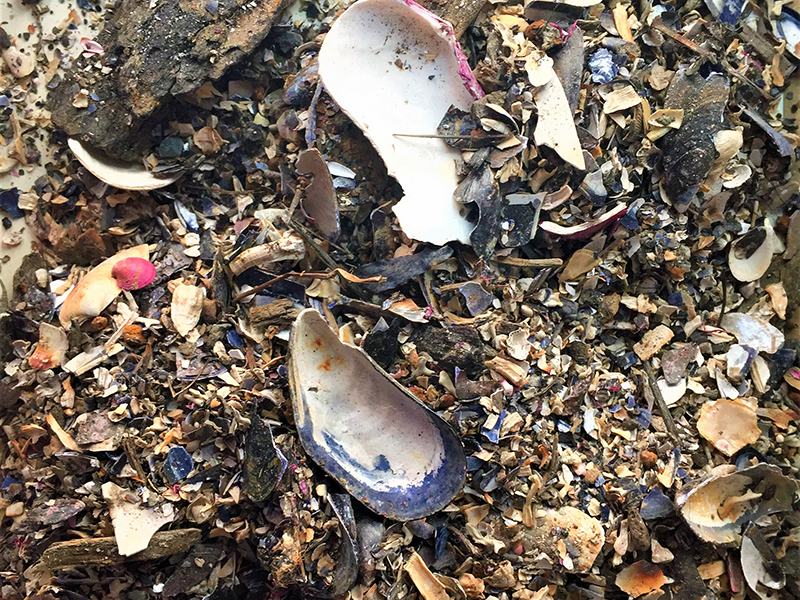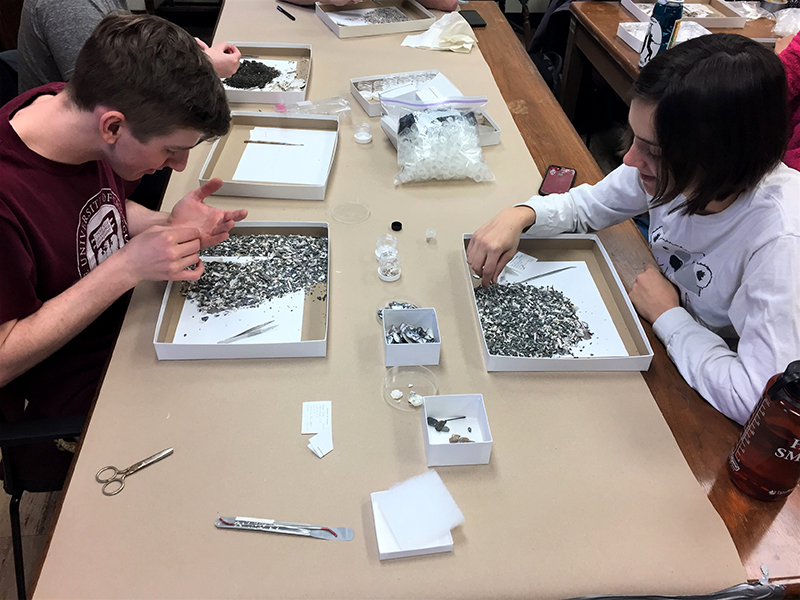
Our Marine Sediment Monitoring Team (MSMT) recently entered into a partnership with paleontologist Dr. Susan Kidwell of the University of Chicago, and her PhD candidate Broc Kokesh, to squeeze every last bit of environmental information out of the sediment samples the MSMT collects from Puget Sound.
For 31 years, the MSMT has collected and examined invertebrates living within Puget Sound sediment to understand how their community structure changes over time. Our scientists sort sediment samples of invertebrates that were alive at the time of collection, leaving behind the “grunge” of sand, gravel, and skeletal remains. In the past, the MSMT considered the grunge to be without value and discarded it.
In 2019, Dr. Kidwell learned about the Puget Sound Sediment Monitoring Program and connected with the team to rescue our grunge from the disposal bin. She visited the team in October 2019, collected our grunge, and carried it back to Chicago.
She and her team worked with students in her lab sorting the bivalve shells and identifying them to the species level.
They will ultimately combine their data with MSMT data to generate living-to-dead ratios to estimate the assemblage structure of past populations of bivalves. This will provide evidence of changes in assemblages over time and of ecosystem pressures and stressors that may have influenced these ancient assemblages.
Conducting similar work with grunge from Southern California, Dr. Kidwell pieced together evidence indicating that the overgrazing from cattle in the 19th century led to sediment runoff and “muddification” of the seabed. Fluffy sediments washed from pastureland into the coastal waters buried a once-diverse mosaic of sand, shell-gravel, and soft sediment seabed. This resulted in extreme alteration of a once-diverse bivalve assemblage, and likely the entire coastal benthic assemblage, which thrived for thousands of years on the mainland shelf.
Future work focuses on dead assemblages in Puget Sound, and we will continue to provide the University of Chicago team with our grunge over the next few years.



